May 30, 2025 | 04:36 GMT +7
May 30, 2025 | 04:36 GMT +7
Hotline: 0913.378.918
May 30, 2025 | 04:36 GMT +7
Hotline: 0913.378.918
As of July 9, Ho Chi Minh City implements a social distancing order according to Directive 16 to prevent Covid-19, therefore, all wholesale markets namely Binh Dien, Hoc Mon, Thu Duc among others have been forced to close. This situation has hindered the output of the agricultural products from Lam Dong supplying fo the market, causing heavy losses to farmers.
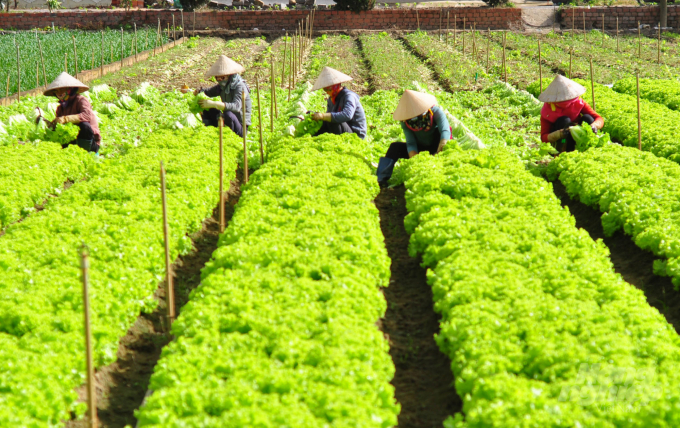
Ho Chi Minh City closed wholesale markets, causing many gardeners to grow vegetables in Lam Dong in a difficult situation. Photo: Minh Hau.
Dang Thi Oanh said that her family signed a contract to lend a 2,000-meter square garden and invested in net houses and greenhouses to produce leafy vegetables such as cabbage, spinach, quinoa among others.
During the pandemic outbreak, her family provided around 1 ton of agricultural products to her clients in some wholesale markets on Hoc Mon (Ho Chi Minh City). However, currently, the Metropolis decided to close the market, therefore, her vegetables can not be consumed.
In the same situation, the 5,000m2 Coron lettuce garden of Nguyen Thu Hang's family in Thanh Mau Street (Ward 7, Da Lat City) came to harvest but there was no output.
According to this farmer, her family contracted with a facility specializing in supplying vegetables to the Ho Chi Minh City market, but since July 9, it announced to suspend the product delivery to downtown.
Therefore, about 20 tons of commercial vegetables remained unsold. In addition, other vegetables such as quinoa and cabbage do not have a consumption market.
"Can't sell vegetables, so our crop incurs a loss of about VND50-70 million" sadly said, Nguyen Thu Hang.
The businesses of farmers providing vegetables for wholesale markets have been in stark contrast to the one for supermarkets, as the latter saw a soaring of orders recently.
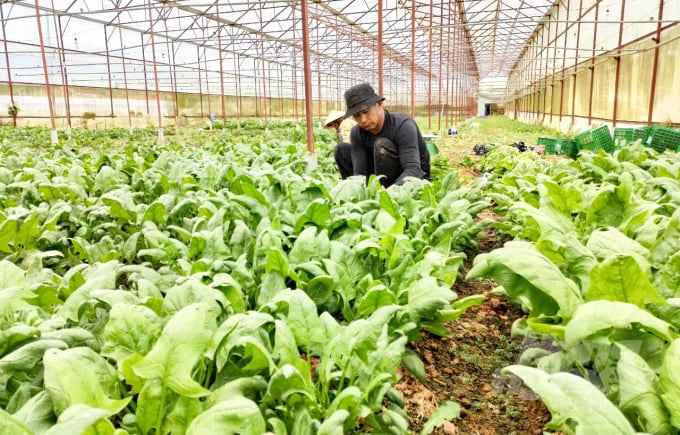
Nguyen Van Thinh's family in Ward 7, Da Lat City harvests spinach to supply supermarkets in Ho Chi Minh City. Photo: Minh Hau.
Le Van Ba, Director of An Phu Cooperative (Hiep An Commune, Duc Trong District, Lam Dong) said that the supply chain between the cooperative and supermarket systems in Ho Chi Minh City is still maintained regularly. The contract price did not change, but the cooperative's order volume increased by 10-20% compared to the time when the city had not implemented the distancing measures.
According to Ba, previous transport of agricultural products from Lam Dong to Ho Chi Minh City only took about 7-8 hours. However, due to the pandemic outbreaks, many health control agencies have been set up leading to the interruption in the transport circuit, prolonging the delivery time to 12-15 hours, or even more.
The slow shipping of goods, especially vegetables, has caused many consequences. In which, the quality of agricultural products was affected, the supply could not keep up with the demand, leading to market instability and high prices.
He said: "Now there are some places where vegetables can't be sold, where no one can take them but there are places where they can't buy them. Market prices also went up.”
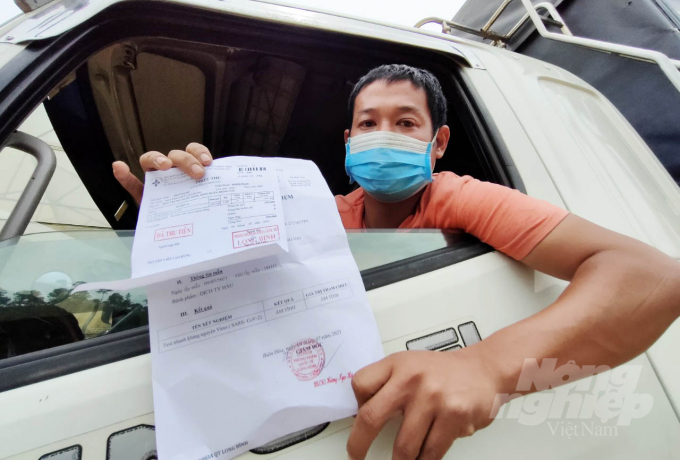
Driver Nguyen Viet Cao Hung with a new negative test certificate. Photo: Minh Hau.
Phan Thong, Director of Thong Phuong Company (Duc Trong district, Lam Dong), an enterprise specializing in supplying agricultural products to supermarket systems in the Ho Chi Minh City market, also said that shipping time is a concern. The application of medical declaration by local health authorities has inadvertently led to traffic jams through the station. Therefore, this business has actively worked with partners to change the schedule of trips at peak hours to off-peak hours.
In terms of producers, households in the chain linked to supermarkets have favorable output but saw a drop in prices.
Nguyen Van Thinh (living in Ward 7, Da Lat City) said that his family grows 1 ha of spinach with a total investment of nearly VND100 million. Currently, the family harvests from 500-700kg of veggies per day and supplies them to supermarkets in Ho Chi Minh City. Although the trade is still smooth, the price is only VND 10,000 per kg, half of the previous price of VND 20,000 per kg.
Dang Thi Oanh said that social distancing is necessary, but the authorities also need a solution to clear the path for products consumption. She said that Ho Chi Minh City authorities need to open one of the wholesale markets with special and effective health control measures.
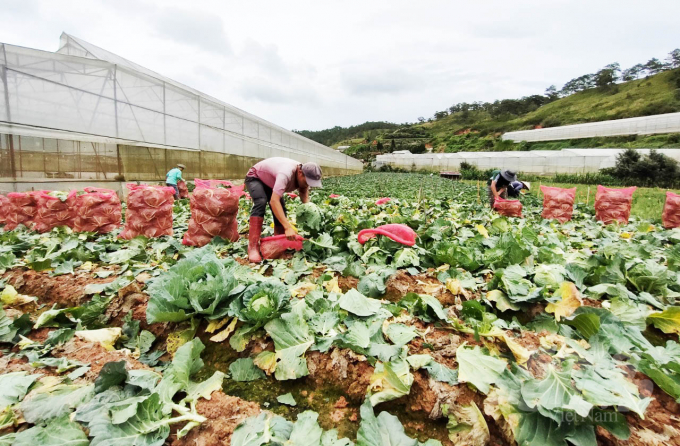
The wholesale market in Ho Chi Minh City is closed, so many gardeners in Da Lat have lost their output. Photo: Ming Hau.
Meanwhile, the Director of An Phu Cooperative informed that the social distancing area still has to remain, but it is necessary to have a separate route to ensure the harvest and transport of agricultural products. Trade activities between this region and the other must be opened to ensure supply and demand. For disease control checkpoints, it is necessary to have more optimal measures, giving priority to goods transporting vehicles in general and agricultural products in particular.
Nguyen Viet Cao Hung, a truck driver delivering vegetables from Da Lat to Ho Chi Minh City market, said that he had acquired a negative SARS-CoV-2 test every three days at the health station. Each time, he had to spend an amount of VND240,000-350,000.
“Sometimes when I drive from Ho Chi Minh City to Da Lat, my test certificate expired, so I had to go to the medical center to do it again. When I got the paper, the products are not collected enough or interrupted, so they have to wait for two to three days. Spending money for testing but the car can not leave, no remuneration is paid, the owner does not pay me the test fee, so it is very costly. Drivers like us all hope that the health authorities need to take other measures to support."
The supply chain of vegetables in the pandemic-hit area is still guaranteed
Don Duong district (Lam Dong) is a large vegetable, tuber, and fruit production area in Lam Dong. This locality currently records Covid-19 cases and some places have to implement social distancing according to Directive 16. The pandemic situation is stressful, but the production and consumption of agricultural products here are still guaranteed. Nguyen Thi Be, Head of Agriculture Department of Don Duong district, said that production, transportation, and other activities still keep going as usual.
Translated by Linh Linh
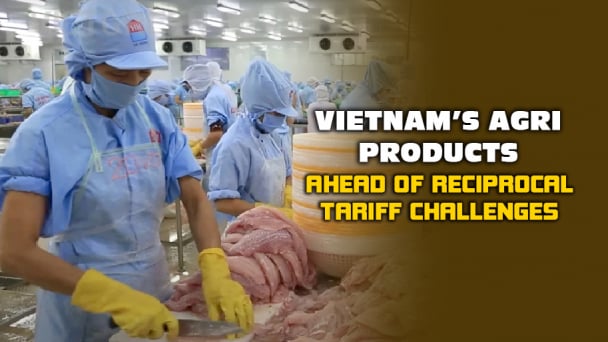
(VAN) Reciprocal tariffs are exerting pressure on U.S. exports, prompting Vietnamese firms to shift their focus to Muslim markets, Thailand, and Brazil.
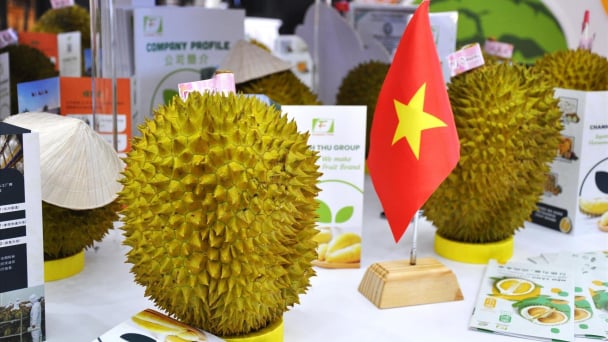
(VAN) A free booth for two years at Xinfadi, Beijing's largest wholesale market, will be allocated to Vietnam's agricultural products.
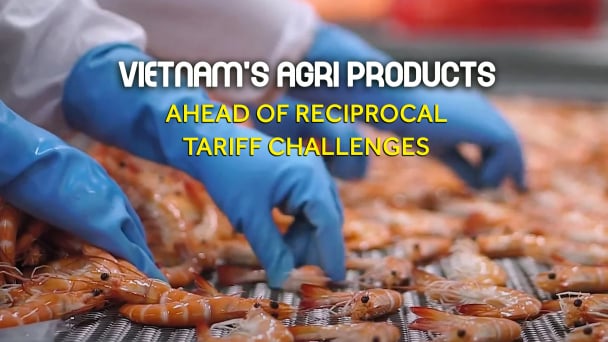
(VAN) Vietnamese shrimp exporters are actively looking for alternative markets and accelerating shipments to the United States in response to the pressure of impending reciprocal tariffs. This is occurring during a temporary tariff suspension.

(VAN) The import-export turnover between Vietnam and Singapore rose amid a trade rebound, with machinery, electrical equipment, and fuels making up the majority of the transaction value.

(VAN) Director General of the General Administration of Customs of China, Ms. Sun Mai Jun, has pledged to implement measures that will ease the import process for Vietnamese agricultural products.

(VAN) Although Vietnam is still increasing its coffee exports, the industry is currently in the process of determining market strategies in response to the U.S. imposition of reciprocal tariffs.

(VAN) With rising demand in Muslim-majority countries, Halal certification is becoming a critical passport for Vietnamese agricultural products seeking sustainable market access and consumer trust in the Middle East and Africa.